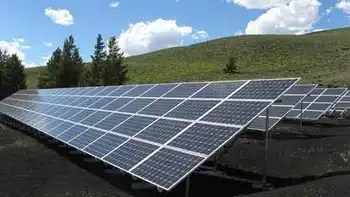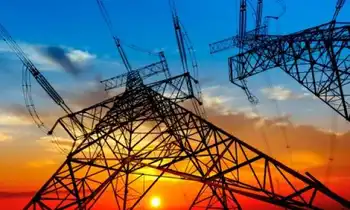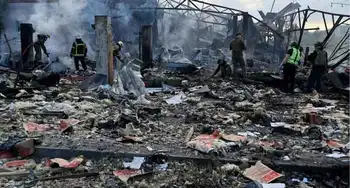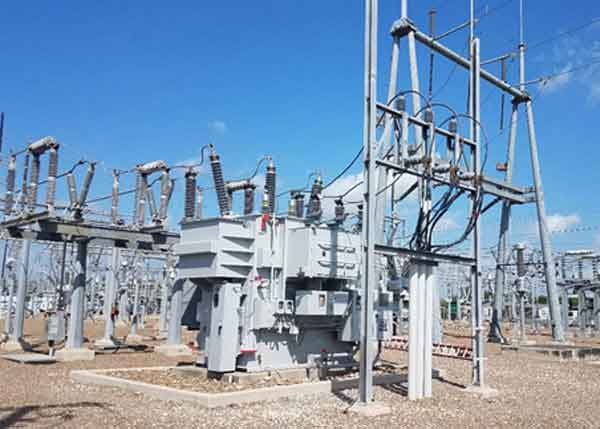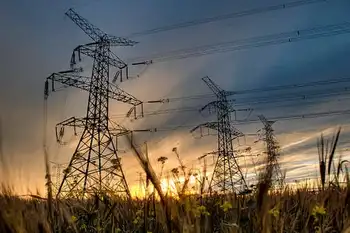Eastern U.S. Heatwave Electricity Demand surges to record peak load, straining the power grid, lifting wholesale prices, and prompting demand response, conservation measures, and load shedding to protect grid reliability during extreme temperatures.
Key Points
It is the record peak load from extreme heat, straining grids, lifting wholesale prices, and prompting demand response.
✅ Peak electricity use stresses regional power grid.
✅ Prices surge; conservation and demand response urged.
✅ Utilities monitor load, avoid outages via load shedding.
As temperatures soar to unprecedented highs across the Eastern United States, a blistering heatwave has triggered record-breaking electricity demand. This article delves into the causes behind the surge in energy consumption, its impact on the power grid, and measures taken to manage the strain during this extraordinary weather event.
Intensifying Heatwave Conditions
The Eastern U.S. is currently experiencing one of its hottest summers on record, with temperatures climbing well above seasonal norms. This prolonged heatwave has prompted millions of residents to rely heavily on air conditioning and cooling systems to escape the sweltering heat, with electricity struggles worsening in several communities, driving up electricity usage to peak levels.
Strain on Power Grid Infrastructure
The surge in electricity demand during the heatwave has placed significant strain on the region's power grid infrastructure, with supply-chain constraints complicating maintenance and equipment availability during peak periods.
Record-breaking Energy Consumption
The combination of high temperatures and increased cooling demands has led to record-breaking energy consumption levels across the Eastern U.S. States like New York, Pennsylvania, and Maryland have reported peak electricity demand exceeding previous summer highs, with blackout risks drawing heightened attention from operators, highlighting the extraordinary nature of this heatwave event.
Impact on Energy Costs and Supply
The spike in electricity demand during the heatwave has also affected energy costs and supply dynamics. Wholesale electricity prices have surged in response to heightened demand, contributing to sky-high energy bills for many households, reflecting the market's response to supply constraints and increased operational costs for power generators and distributors.
Management Strategies and Response
Utility companies and grid operators have implemented various strategies to manage electricity demand and maintain grid reliability during the heatwave. These include voluntary conservation requests, load-shedding measures, and real-time monitoring of grid conditions to prevent power outages while avoiding potential blackouts or disruptions.
Community Outreach and Public Awareness
Amidst the heatwave, community outreach efforts play a crucial role in raising public awareness about energy conservation and safety measures. Residents are encouraged to conserve energy during peak hours, adjust thermostat settings, and utilize energy-efficient appliances to alleviate strain on the power grid and reduce overall energy costs.
Climate Change and Resilience
The intensity and frequency of heatwaves are exacerbated by climate change, underscoring the importance of building resilience in energy infrastructure and adopting sustainable practices. Investing in renewable energy sources, improving energy efficiency and demand response programs that can reduce peak demand, and implementing climate adaptation strategies are essential steps towards mitigating the impacts of extreme weather events like heatwaves.
Looking Ahead
As the Eastern U.S. navigates through this heatwave, stakeholders are focused on implementing lessons learned from California's grid response to enhance preparedness and resilience for future climate-related challenges. Collaborative efforts between government agencies, utility providers, and communities will be crucial in developing comprehensive strategies to manage energy demand, promote sustainability, and safeguard public health and well-being during extreme weather events.
Conclusion
The current heatwave in the Eastern United States has underscored the critical importance of reliable and resilient energy infrastructure in meeting the challenges posed by extreme weather conditions. By prioritizing energy efficiency, adopting sustainable energy practices, and fostering community resilience, stakeholders can work together to mitigate the impacts of heatwaves and ensure a sustainable energy future for generations to come.
Related News







